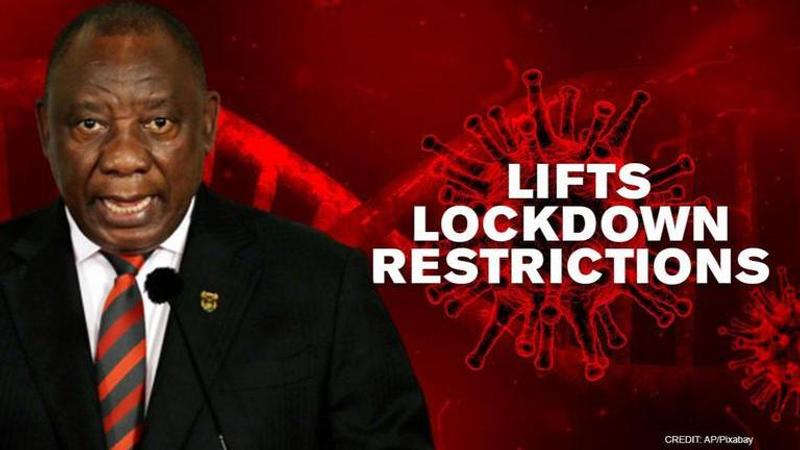Published 12:44 IST, August 16th 2020
South African President lifts coronavirus lockdown restrictions as cases drop
President of South Africa Cyril Ramaphosa said on August 15, Saturday that the country has been witnessed a drop in COVID-19 infections and lifting lockdown.

Advertisement
President of South Africa Cyril Ramaphosa said on August 15, Saturday that the country has been witnessed a drop in COVID-19 infections resulting in lifting the lockdown restrictions. Addressing a press conference, Ramaphosa reportedly said that the government is planning to end the ban on alcohol and tobacco further allowing restaurants and other businesses to return to normalcy. He added that the government will keep an eye on strict hygiene regulations, and remove the ban on travel between provinces.
Lockdown restrictions eased
Ramaphosa said, "All indications are that South Africa has reached the peak and moved beyond the inflection point of the curve" and added that the legislature has decided to impose 'level two' restrictions from midnight on Monday. According to the John Hopkins coronavirus dashboard, South Africa has around 579,000 infections and 11,500 fatalities. It imposed one of the world's toughest and strictest lockdown measures when the nation has few cases. It is now the fifth-highest number of cases in the world.
According to the reports, South Africa saw a huge plunge in its economy due to the COVID-19 crisis pushing the country into a severe recession and forcing millions into extreme poverty. But Ramaphosa said rates of new infections had fallen to an average of 5,000 a day, from a peak of 12,000 a day. He added that the easing of lockdown restrictions is the greatest opportunity for the country to work on its battered economy.
As per several international reports, WHO had deployed a surge team of 43 experts from various fields to help South Africa in containing the spread of the COVID-19 outbreak. WHO stated that the first 17 health experts arrived on August 6. The team of 17 health experts includes key experts from epidemiology, surveillance, case management, infection, prevention and control, procurement, as well as community mobilization and health education.
Updated 12:44 IST, August 16th 2020




